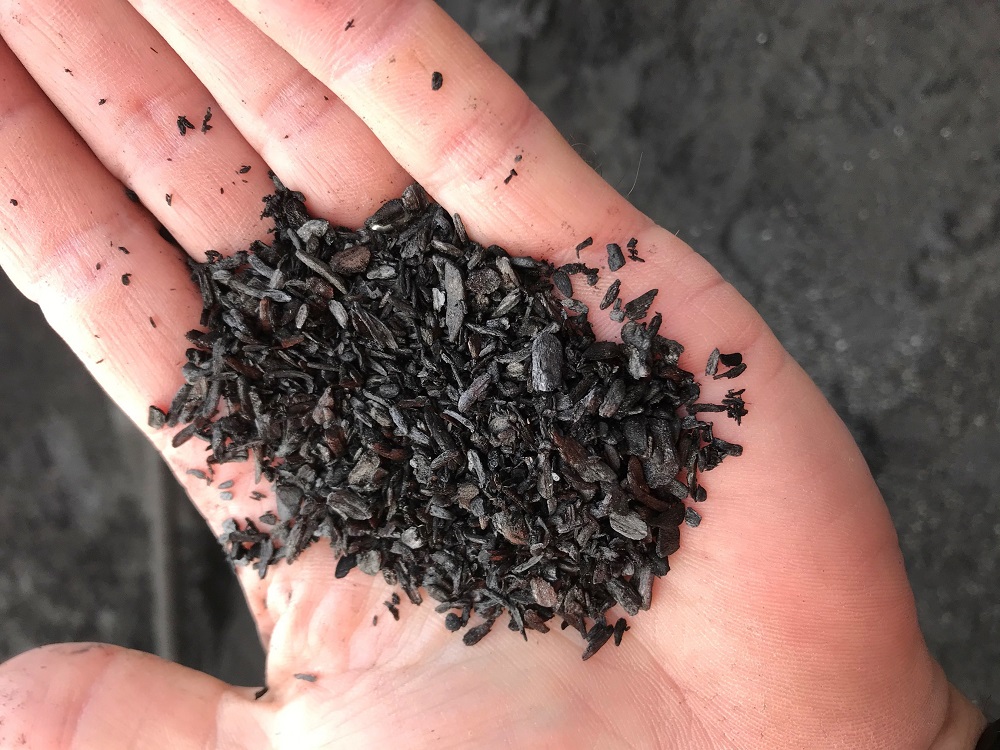Through the production of biochar, a byproduct of its Scotia, California cogeneration plant, Humboldt Sawmill has obtained a European Biochar Certificate, the first U.S. based company to do so.
Biochar is a charcoal-like substance that is a byproduct of burning organic materials like sawdust and other forestry residuals in a controlled process called pyrolysis. Once produced, biochar can be added to soils by farmers and other landowners to aid in water retention, nutrient conservation, beneficial microbial composition, and overall quantity of stable organic matter.
To bring its biochar to market, Humboldt Sawmill has partnered with Pacific Biochar Benefit Corporation (PBBC), who provides raw and processed biochar products to agricultural and other users. PBBC purchases Humboldt Sawmill's certified biochar, mixing it into compost and selling it to farmers.
The European Biochar Certificate provides one of the two necessary links to marketable Climate Credits via carbonfuture, the organization leading monetization opportunities for carbon sequestration through biochar. The second link to Climate Credits is certification from the user of the biochar that such use ensures stable sequestration of the carbon over a long period of time. One such use case is application of biochar directly to soil by a farmer.
